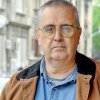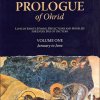Reditelj Srđa Penezić, proveo je više od tri decenije u Njujorku i Los Anđelesu, a pre nekoliko godina vratio se u Srbiju. Priču o životu u Americi, svom filmu "Dobrica" i ocu, Slobodanu Peneziću Krcunu, pratićemo u emisiji "Srbija na vezi" (RTS 2, 16.50), urednice Tamare Drezgić.
Peneziću je Amerika oduvek bila kulturno bliža, kroz muziku, književnost i film. Međutim, kada se posle više od 30 godina vratio u domovinu, shvatio je da se mnogo bolje oseća i razume sa našim ljudima nego sa Amerikancima. Da više pripada ovde, nego tamo. Jedan događaj u Americi inspirisao ga je da napiše scenario za film "Dobrica", koji je i režirao. Glavnu ulogu tumači Slavko Štimac, a film je okupio naše ljude koji žive u Srbiji i Americi, Mirjanu Joković, Radana Popovića.
Srđa će, u emisiji, evocirati i uspomene na svoga oca, Slobodana Penezića Krcuna, nekadašnjeg predsednika Izvršnog veća Skupštine Srbije, jednu od najvažnijih ličnosti posleratne Jugoslavije. Njegov život, ali i saobraćajna nesreća u kojoj je nastradao, 1964. godine, i danas predstavljaju jednu od najvećih misterija Titovog vremena.
Kada je 1980. godine, sa drugom, Velimirom Abramovićem, otišao u London, Srđa je maštao o tome da napišu roman. Posle godinu dana, Velja se vratio u Jugoslaviju, a Penezić je otišao u Ameriku. Živeo je najpre u Njujorku, gradu koji ga je mnogo podsećao na Beograd, a prelaskom u Los Anđeles počeo je da radi u struci. Tokom godina provedenih u Americi, Srđa je sretao mnoge naše ljude koji su iz različitih razloga napustili Jugoslaviju i Srbiju.
M.J.M. | 12. jun 2020.
Izvor: Novosti





